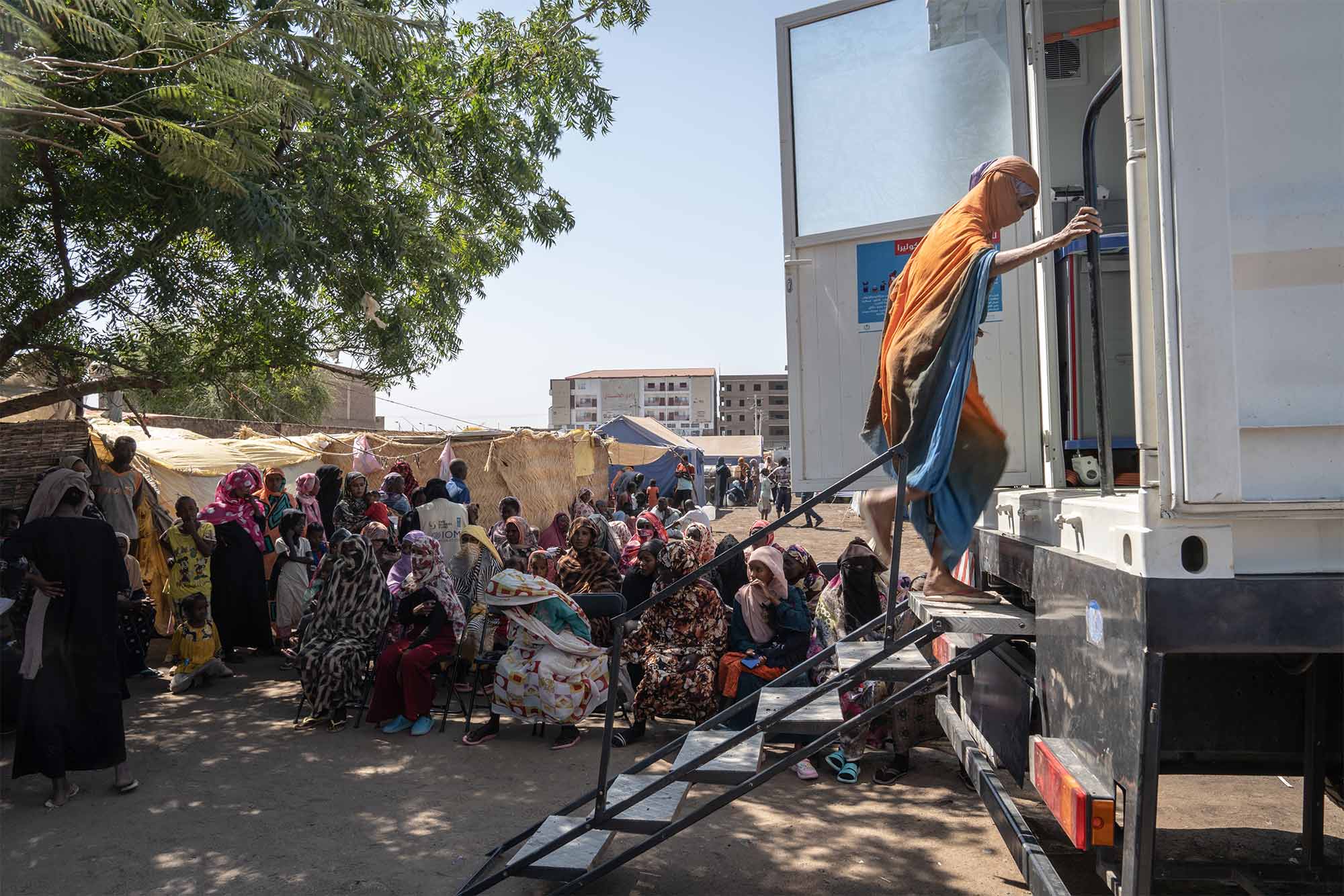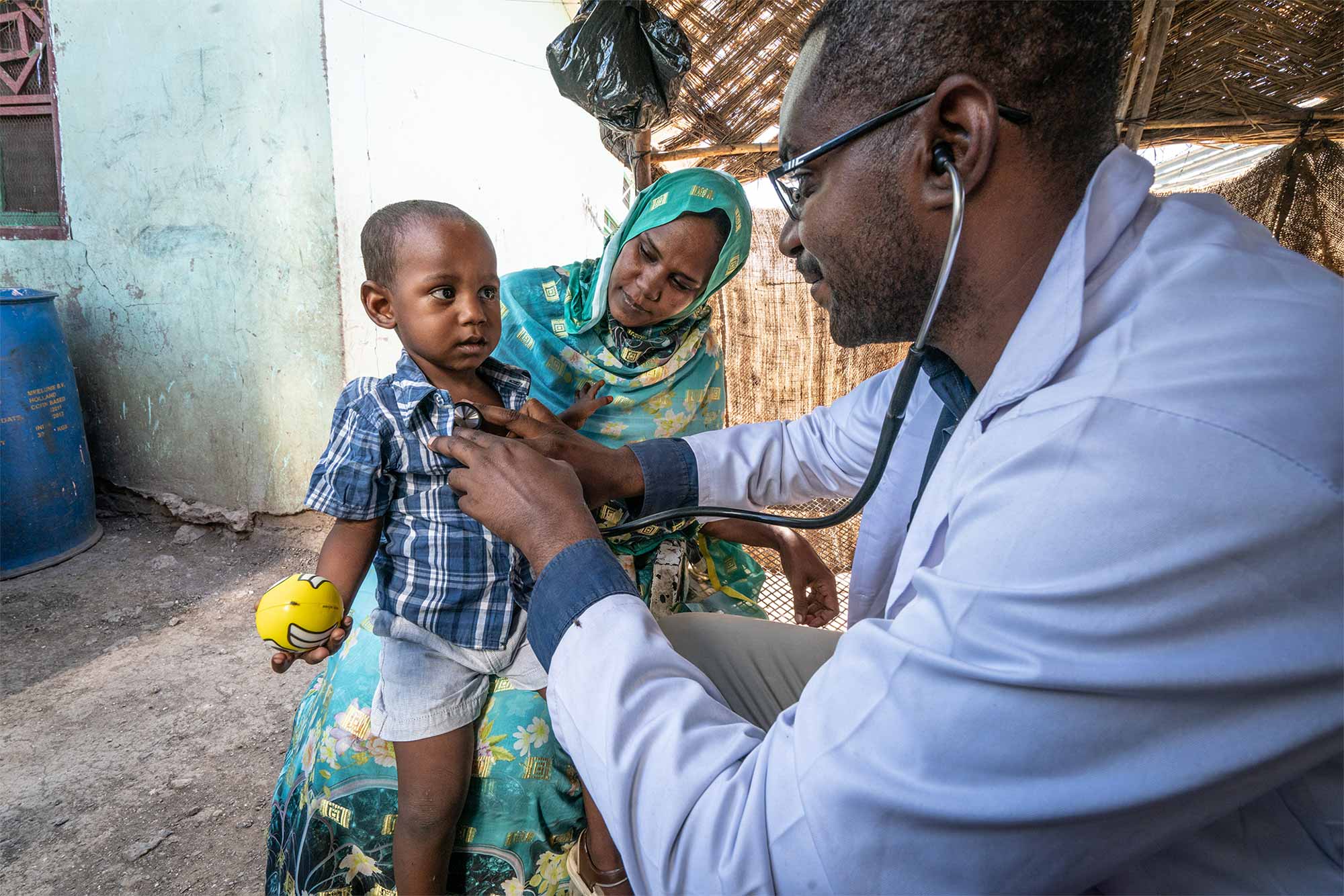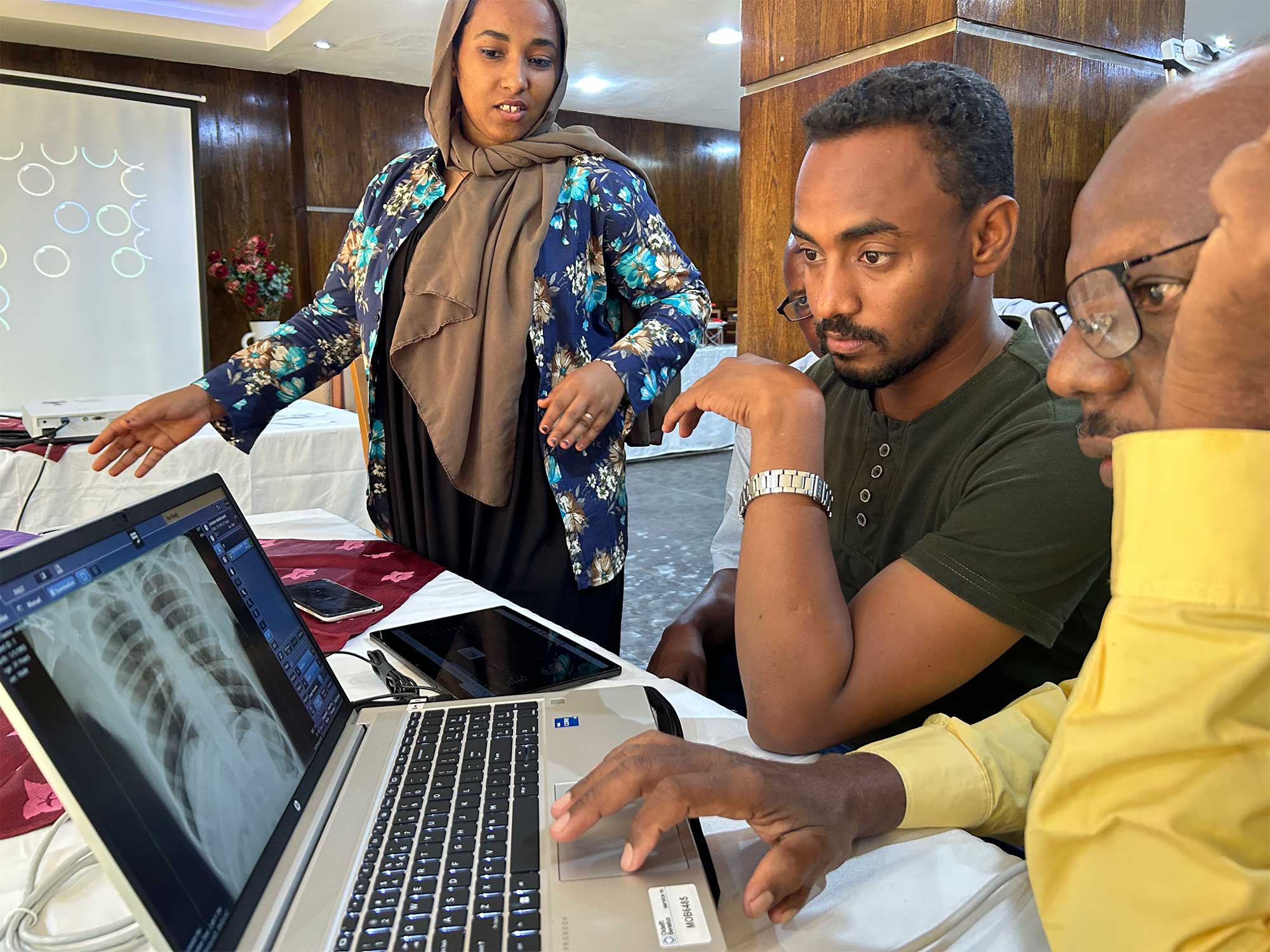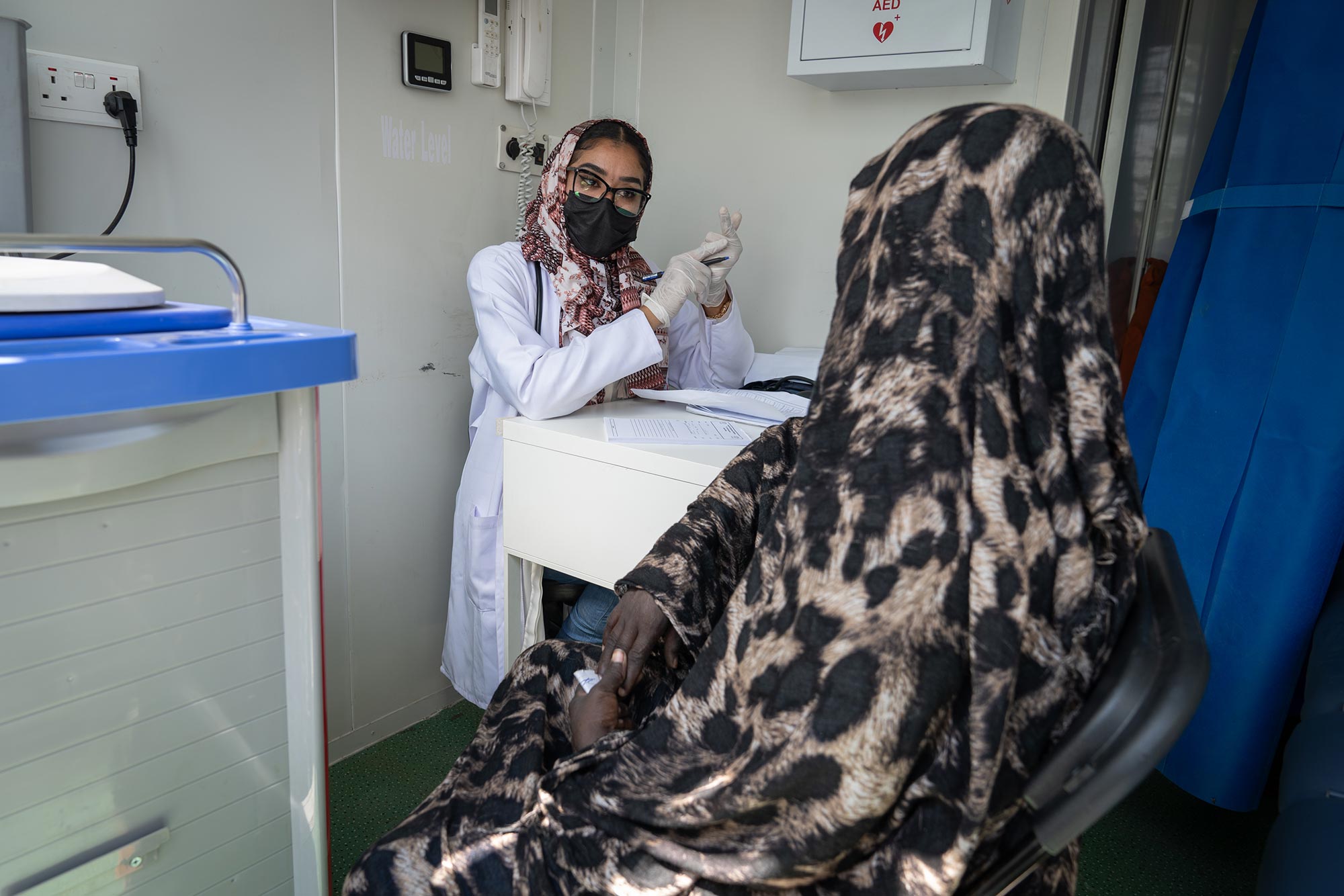Sudan: Delivering Vital Health Services Despite Conflict and Displacement
The conflict in Sudan has led to one of the largest displacement crises in the world, with more than 14 million people forced from their homes. Health systems across the country have completely collapsed.
An estimated 80% of health facilities in conflict-affected regions of the country are no longer operational. The clinics and hospitals that continue to function face acute shortages of medical staff and supplies, with insufficient access to safe water, electricity and fuel.
The result has been widescale malnutrition and a resurgence of deadly diseases.
Since the conflict began in April 2023 people across Sudan have faced cholera, measles, dengue fever and malaria outbreaks. Efforts to fight HIV, tuberculosis (TB) and malaria have been severely impacted.
Conflict and displacement not only fuel the spread of disease, but also risk reversing important health gains made after decades of strategic health investments.
Despite these massive challenges, the Global Fund continues to support the delivery of vital health services in Sudan, procuring nearly all HIV, TB and malaria medicines in the country. Together with partners, the Global Fund safely delivered essential medical supplies to the Darfur region, for the first time in November 2024, despite challenges with humanitarian access and a year of severe supply chain disruptions.
Other areas of investment include:
Mobile Health Centers That Serve as a Lifeline

Photo: UNDP Sudan/2025/Giles Clarke
Global Fund investments are funding nine state-of-the art primary health care mobile centers, which deliver essential health care to people in remote regions.
Services include HIV and TB care, malaria testing and treatment, nutritional support, maternal and child health services, screening and management of chronic diseases like diabetes and hypertension, as well as psychosocial support.
The teams have been deployed in hard-to-reach communities in Red Sea State and Northern State, the Argeen checkpoint on the Sudan-Egypt border and camps for displaced people in Kassala State and Gedaref State.
Each mobile unit can provide health services to 35 to 50 people every day, but the needs are significantly higher – with daily attendance reaching up to 150 patients a day in some locations.
Fighting Malaria with Mass Net Campaign and Strengthening the Skills of Community Health Workers

Photo: UNDP Sudan/2025/Giles Clarke
To help protect people from malaria, the Global Fund is working with the Federal Ministry of Health and UNICEF on a mass distribution campaign of 15.6 million mosquito nets. This includes dual active ingredient (dual AI) insecticide-treated nets, which are coated with two insecticides, making them more effective against mosquitoes that have built up resistance to standard nets.
The mass campaign, planned to begin in April 2025, will target 28 million people – two-thirds of Sudan’s population – in 14 states with the highest burden of the disease: all Darfur states, Kordofan states, Blue Nile, White Nile, Kassala, Gedaref, Senar and Al Jazira states.
Despite the conflict, community health workers in Sudan continue to play a vital role in bringing lifesaving health services to hard-to-reach communities. The Global Fund will be providing support by training community health workers in Sudan on malaria prevention, testing and treatment as well as provide them with essential tools such as rapid tests and medications.
High-tech Tools Targeting People Most at Risk of TB

Photo: UNDP Sudan/2025/Giles Clarke
People forcibly displaced from their homes often have to stay in overcrowded and unsanitary conditions – places where infectious diseases, including TB, can easily spread.
In response, the Global Fund is working with the Federal Ministry of Health and UNDP to ensure health teams are equipped and trained using mobile TB services. This includes procuring GeneXpert machines and Delft Imaging’s ultraportable X-ray and Computer Aided Detection (CAD) software. The software uses artificial intelligence (AI) to rapidly and accurately read digital X-rays to identify potential TB cases.
The mobile teams reach communities at particular risk of TB, including those cut off from health services, mining communities in River Nile State and people living in internal displacement camps in Kassala and Gedaref states.
The mobile TB services provide rapid diagnosis, which allows health workers to put people on TB treatment as soon as possible and prevent TB from spreading further.
Maintaining Access to Lifesaving HIV Medications

Photo: UNDP Sudan/2025/Giles Clarke
The conflict in Sudan risks reversing huge gains in the fight against HIV, as two-thirds of all health facilities providing HIV services are no longer functioning, and many people living with HIV have been displaced, making it difficult for them to access medications and receive care.
Since conflict broke out in April 2023, the Global Fund has been working closely with the Federal Ministry of Health and UNDP to adapt HIV services to respond to the crisis. This includes ensuring continuous stocks of antiretroviral medicines (ARVs) and other lifesaving medications, rapidly replacing lost stocks in conflict areas, working with local community networks to deliver HIV services to conflict-affected communities, and creating new medical distribution points in internal displacement camps.
These emergency measures have been effective: Eight months after the war began, it was estimated that 96% of people living with HIV in Sudan on ARVs before the conflict were able to remain on these lifesaving medications. This is thanks to civil society organizations, who play an essential role in maintaining critical care for the most-affected populations.